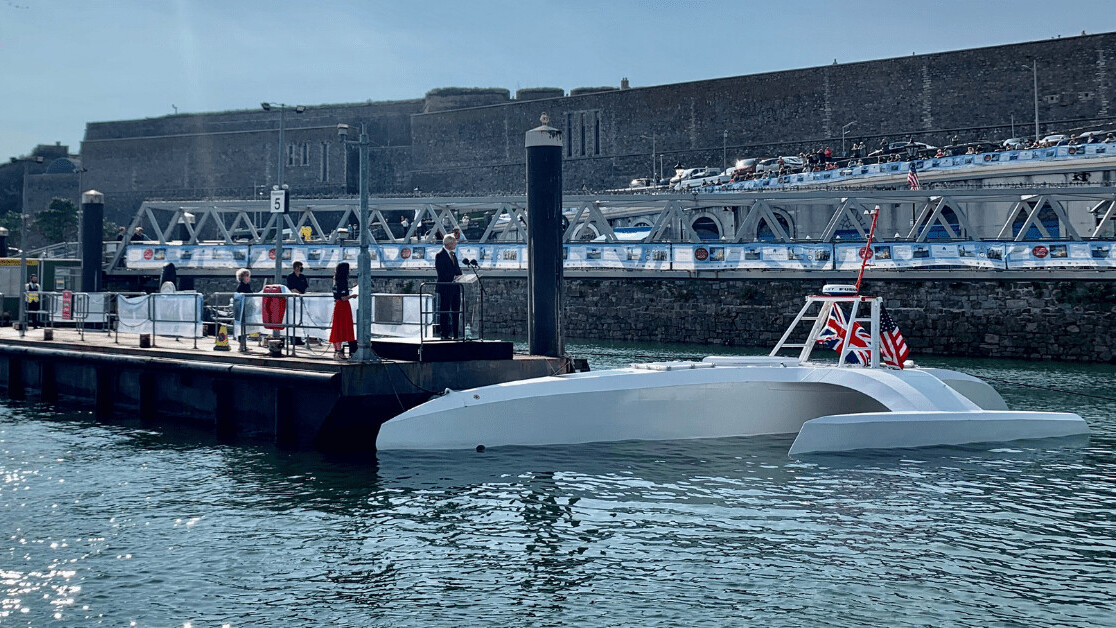
The Mayflower Autonomous Ship today set sail from Plymouth on the southern coast of England, 400 years since its namesake left the same port to take the Pilgrims to Massachusetts, where they established the first permanent colony in New England.
The AI and solar-powered marine research vessel is designed to collect environmental data that can deepen our understanding of global warming, ocean pollution, and marine mammal conservation. It will first spend six months in sea trials before attempting to replicate the Pilgrim’s transatlantic voyage in Spring 2021.
The ship uses IBM’s computer vision tech to detect ocean hazards captured by onboard cameras, forecast data from The Weather Company to avoid approaching storms, and automation software to ensure that decisions follow international collision regulations. All this information will be sent to the ship’s AI Captain, which continuously analyzes the data and adjust its plans accordingly.
[Read: Are EVs too expensive? Here are 5 common myths, debunked]
The whole system runs on small edge computing devices installed on the ship, which give the vessel enough compute power to operate without a permanent internet connection. Jonathan Batty, IBM’s head of communications for the project, said all the research equipment onboard has to operate autonomously even when there’s no connectivity:
Sample collection methods need to be automated and there needs to be a balance between what analysis is performed on the ship, and what samples are taken back to shore for further studies. We are experimenting with some really cool kit. For example, HyperTaste technology, an electronic, AI-assisted ‘tongue’ developed by IBM Research which enables rapid chemical characterization of liquids, such as ocean water, using combinations of many sensors in an array. Because the technology has a very small physical profile, it’s easy to take HyperTaste onboard the Mayflower helping scientists to analyze water quality and pollution levels in situ on the ship.

You can follow the vessel’s voyage through an interactive web portal that provides live updates on its location, environmental conditions, and the research data it’s collected.
So you’re interested in AI? Then join our online event, TNW2020, where you’ll hear how artificial intelligence is transforming industries and businesses.
Get the TNW newsletter
Get the most important tech news in your inbox each week.





